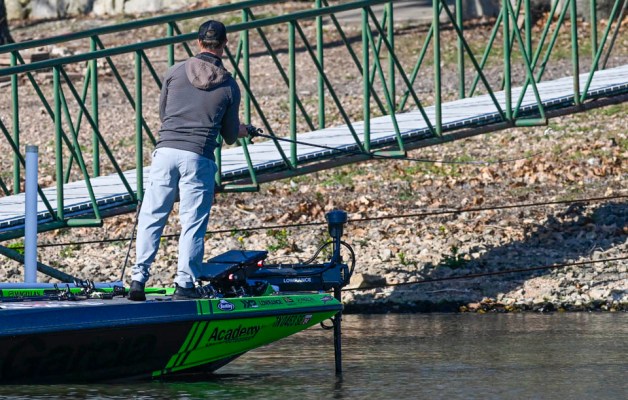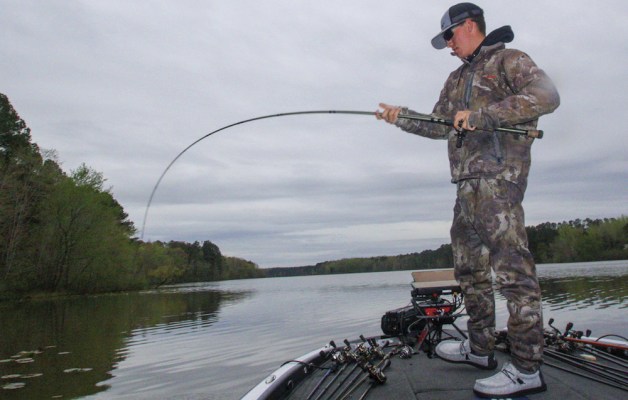The possibility of a new world record largemouth bass coming out of Japan has a lot of anglers asking questions about angling in the Far East.
The odds are better than good that you have a rod, reel or perhaps a few hundred lures that were made in Japan, but it's just as likely true that you've never considered traveling to Nippon to try to catch a bass there. More likely you'd dream about a trip to one of the Mexican bass factories or perhaps the Boundary Waters of Canada, if you're thinking about leaving the good ol' U.S. of A.
But Japan has bass, too, and now they have an argument that they grow bigger there than just about anywhere else on the planet.
Here's your starter's guide to Japanese bass fishing, FAQ style:
Q: Are largemouth bass — or any other members of the Micropterus family, for that matter — native to Japan?
A: No, they're not. In fact, as far as we know, bass are only native to the eastern parts of North America. That's right; the giants that have come out of California for the past 40 years or so are just as artificial as the lunkers coming from Japan in the last few years.
According to the best information available, a Japanese businessman named Akabishi Tetsuma imported largemouth bass from the United States and stocked them in Ashino Lake (not far from Tokyo) in about 1925. Tetsuma apparently enjoyed fishing for bass and found them tasty. Though he thought bass fishing would catch on quickly, it didn't. Japanese anglers preferred simpler tackle and more delicate fishing than the baits and gear commonly used for bass at that time.
It wasn't until the mid 1940s, after the Allied powers defeated the Axis nations in World War II and American forces began occupying Japan, that bass fishing caught on. Of course then it was American soldiers doing the fishing.
Finally, in the 1970s, Western-style fishing, with artificial lures and baitcasting and spinning reels, caught on in Japan. At about the same time, Japanese manufacturers began competing with American companies and others to design, build and distribute the rods, reels and lures that bass fishermen around the world would use.
With the rise in popularity of bass fishing in Japan, the bass in Ashino Lake began to be distributed all around the country.
Q: What's the biggest largemouth ever caught in Japanese waters — before Kurita's possible world record?
A: On April 22, 2003, Kazuya Shimada caught a 19.15-pound largemouth from Japan's Lake Ikehara. It will stand as the biggest bass ever caught in Japan unless, and until, Manabu Kurita's 22-pounder is certified.
Q: How are bass treated in Japan?
A: Not very well, to put it bluntly. But we can't blame the Japanese for that. You see, in Japan, the bass is an invasive species — kind of like the snakehead in the United States.
Though many Japanese anglers love bass fishing and many Japanese manufacturers have made fortunes building and selling bass tackle, not all Japanese residents like bass. Some are concerned that bass diminish populations of native fish that are also highly prized and, in some cases, commercially harvested. And some Japanese naturalists claim that the bass has no natural enemy in Japan, allowing them to thrive, perhaps at the expense of native fish and insects.
In an interview with the Los Angeles Times about five years ago, Minuro Sato, the director of Japan's National Federation of Fisheries Cooperative Association, said, "Japanese bass fishing is a 'dark fishing' and cannot be called a sport. Bass anglers are very bad mannered — parking a car on a plowed field, interrupting traffic, cutting off lures if gotten caught in fishing nets. It is a lawless situation regarding a foreign fish."
And in an effort to protect their native fish (or their commercial fisheries, depending on whom you choose to believe), the Japanese have effected certain rules they hope will stop or slow the spread and growth of bass in their waters, including the prohibition of live release and encouraging consumption of bass.
To that end, it's interesting to note that in the Lake Biwa Museum restaurant, bass is a menu item.




